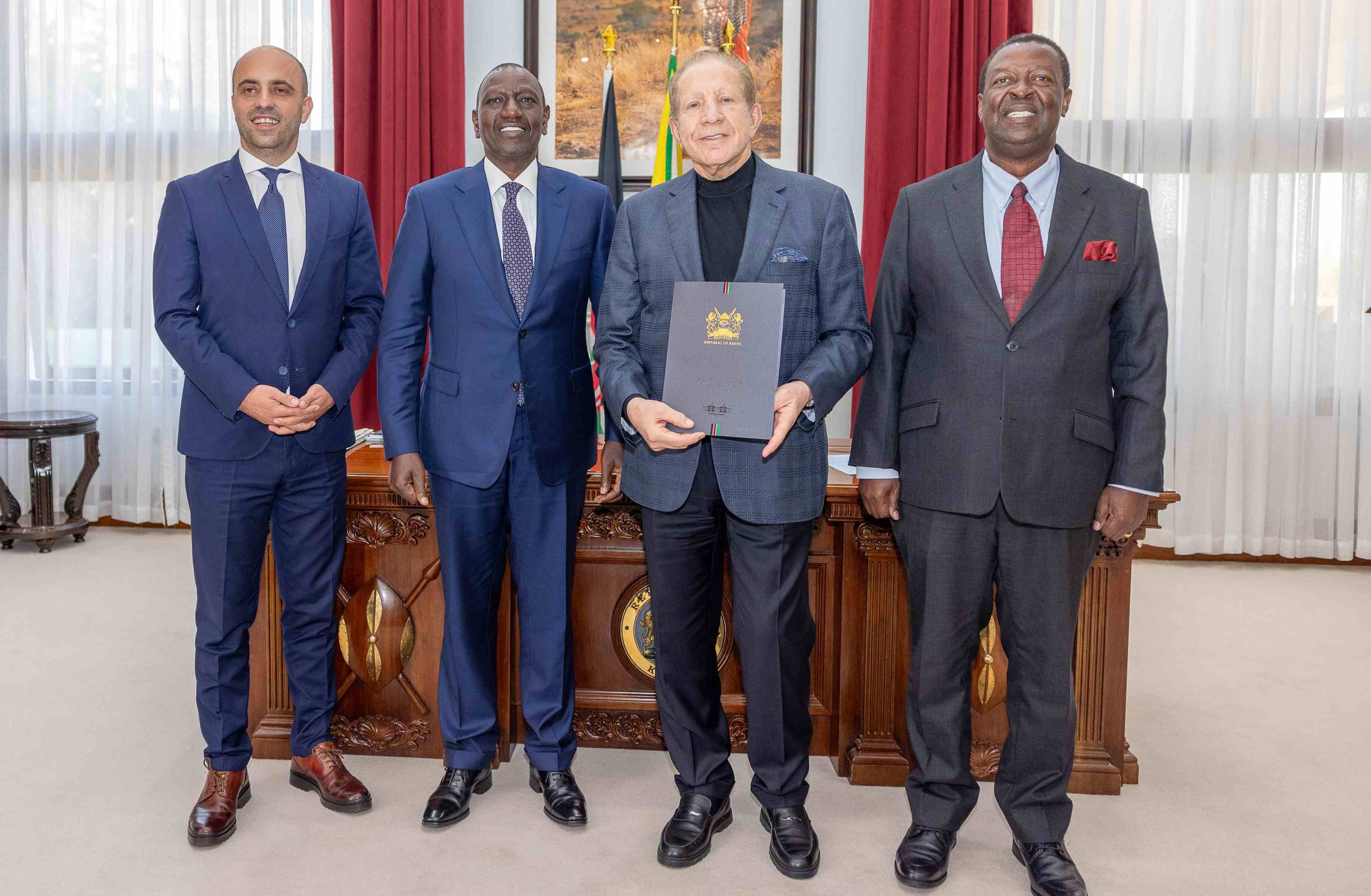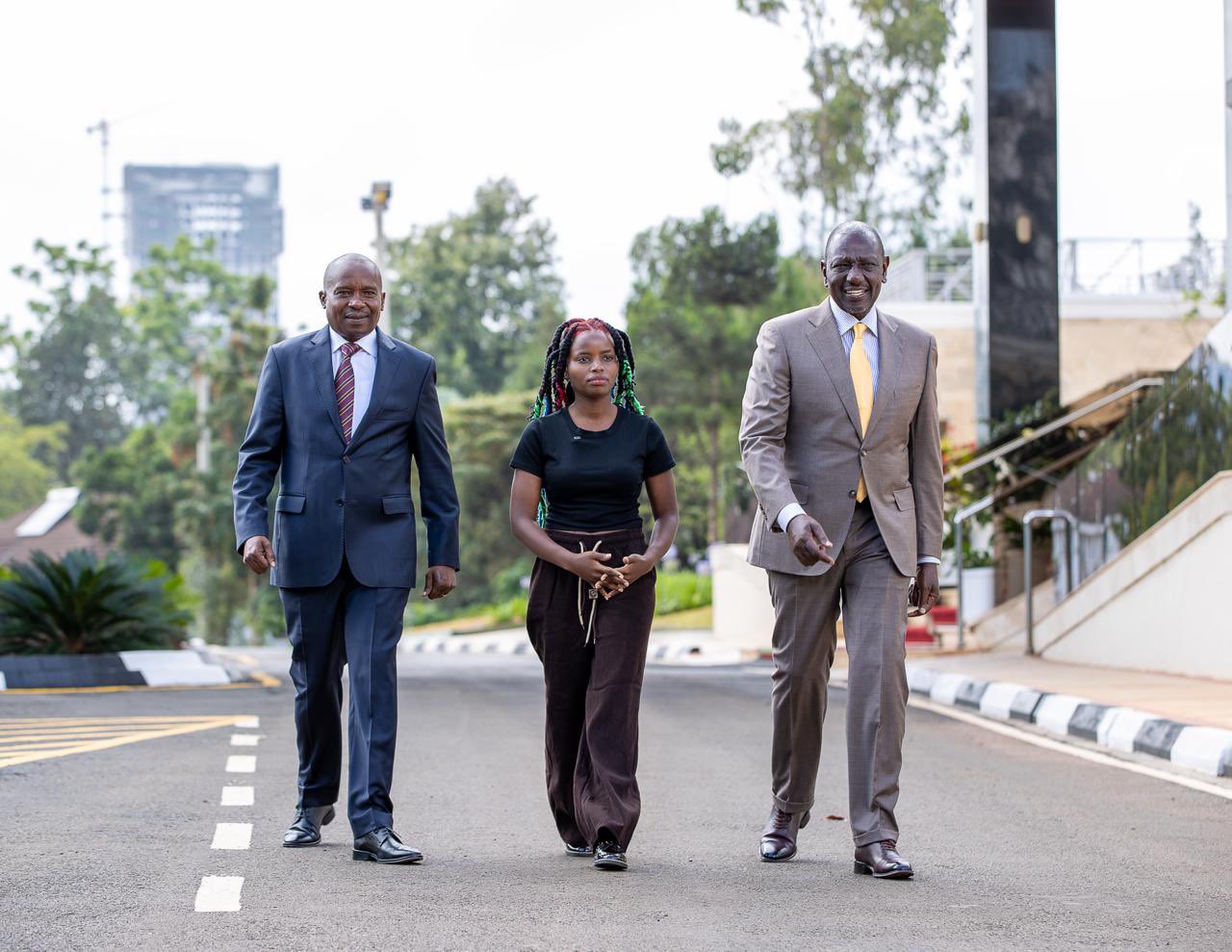Kenya officially recognizes Kosovo as an independent state

Pacolli, who has lobbied for Kenya’s recognition of Kosovo since 2009, recalled that President Ruto had visited Kosovo in 2019, where he witnessed the determination of the Kosovan people.
Kenya has officially recognized Kosovo as an independent state, marking a notable shift in its diplomatic stance.
The announcement was confirmed by Albanian President Bajram Begaj on Wednesday evening, following a meeting between Kosovo’s Special Envoy Behgjet Pacolli and President William Ruto in Nairobi.
More To Read
President Begaj took to social media to express his appreciation for Kenya’s decision, calling it a significant step toward strengthening Kosovo’s global position.
"Pleased that Kenya has recognised the state of Kosova today. I extend my gratitude to my friend (President) William Ruto for this decision, warmly welcomed by all Albanians," Begaj wrote on X.
Pacolli, a former president of Kosovo, hailed the recognition as a historic victory for his country.
In a statement posted on his Facebook page, he shared images of President Ruto signing the official recognition letter, describing it as a "remarkable and unforgettable ceremony."
“Seventeen years after Independence, in a remarkable and unforgettable ceremony, the Republic of Kenya, one of the most important countries in Africa, officially recognized the Republic of Kosovo as an independent and sovereign state,” Pacolli said.
He said that Kenya’s decision was not just a symbolic gesture but a major diplomatic milestone for Kosovo’s global standing.
“This recognition is not just a declaration – it is a great victory for the state of Kosovo, it is the voice of our freedom that is heard deep in the heart of Africa!” Pacolli added.
Asante sana, Kenya! 🇽🇰🤝🇰🇪
— Vjosa Osmani (@VjosaOsmaniPRKS) March 26, 2025
The Republic of Kosovo extends its deepest gratitude to President @WilliamsRuto and the Republic of Kenya for the historic decision on the recognition of our country’s independence. This recognition strengthens the friendship between our nations and… pic.twitter.com/70aN4nl9Vc
Pacolli, who has lobbied for Kenya’s recognition of Kosovo since 2009, recalled that President Ruto had visited Kosovo in 2019, where he witnessed the determination of the Kosovan people.
He noted that during his visit to Nairobi in 2023, the Kenyan government took initial steps by recognizing Kosovo’s passports, signaling a growing diplomatic relationship.
Diplomatic relations
Following Kenya’s recognition, Pacolli urged the Kosovo government to take immediate steps to establish formal diplomatic ties with Nairobi.
He also proposed opening a joint embassy with Albania in Kenya, arguing that Kosovo should strengthen its presence in Africa.
Other Topics To Read
“Kosovo must be present where it is respected and supported – in the heart of Africa! This embassy will be Kosovo’s gateway to enter powerfully into the African continent, to build new political, economic, and cultural alliances,” Pacolli stated.
He expressed appreciation for Albania’s continued diplomatic efforts, crediting Albanian President Bajram Begaj and Prime Minister Edi Rama for supporting Kosovo’s international recognition.
“This is the day Kosovo was seen, heard, and accepted. This is the day when our people should feel the pride of a priceless victory – the international recognition of our state,” he declared.
Kosovo’s long path to recognition
Kosovo declared independence from Serbia in 2008 following years of political struggle. Despite its claim that 117 countries have recognized its sovereignty, only 10 African nations have officially done so.
A former region of Yugoslavia, Kosovo was historically linked to states like Croatia, Bosnia and Herzegovina, Serbia, Macedonia, Montenegro, and Slovenia.
When Yugoslavia broke up in the early 1990s, Kosovo remained under Serbian rule until it unilaterally declared independence in 2008.
However, Kosovo’s quest for full international recognition remains complicated.
It is still not a member of the United Nations due to strong opposition from Serbia and key global powers such as Russia and China, both of whom hold veto power at the UN Security Council.
Top Stories Today












































